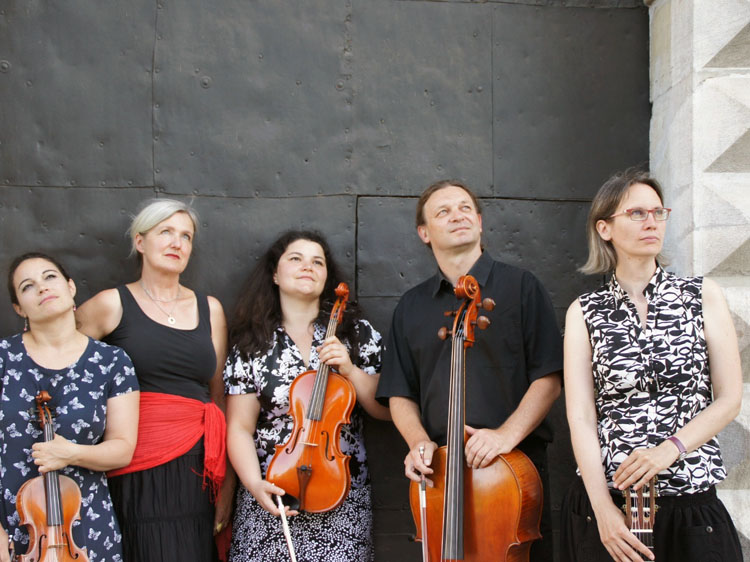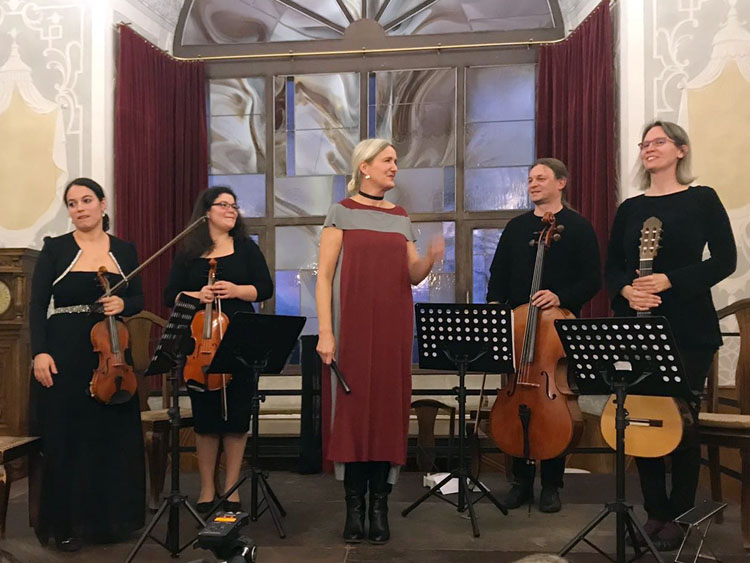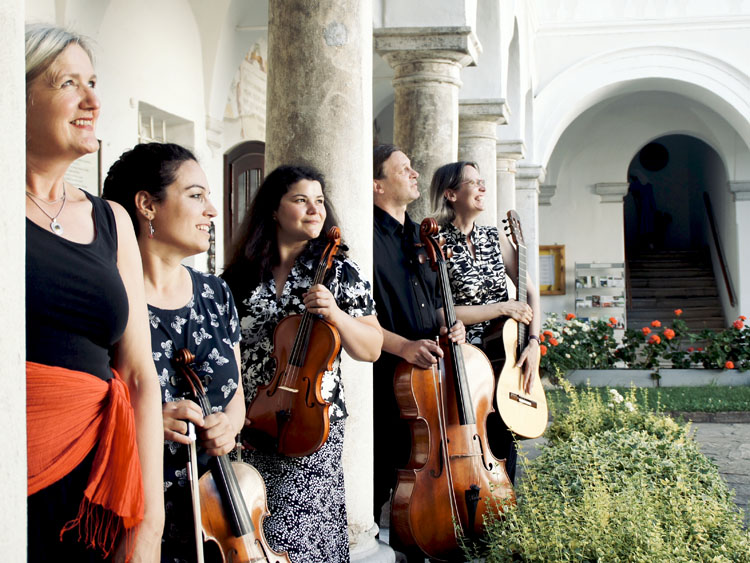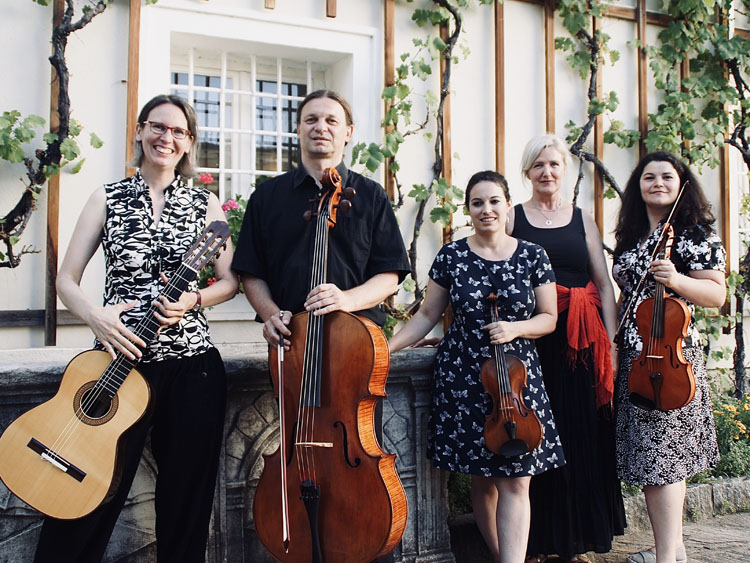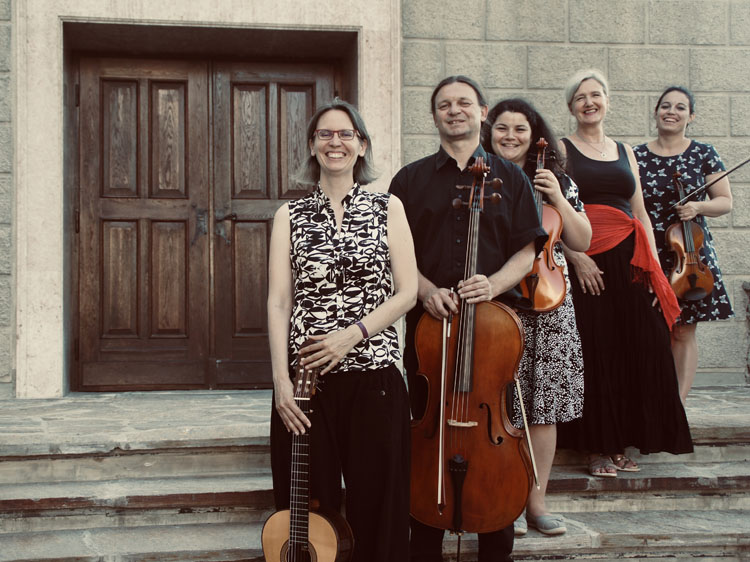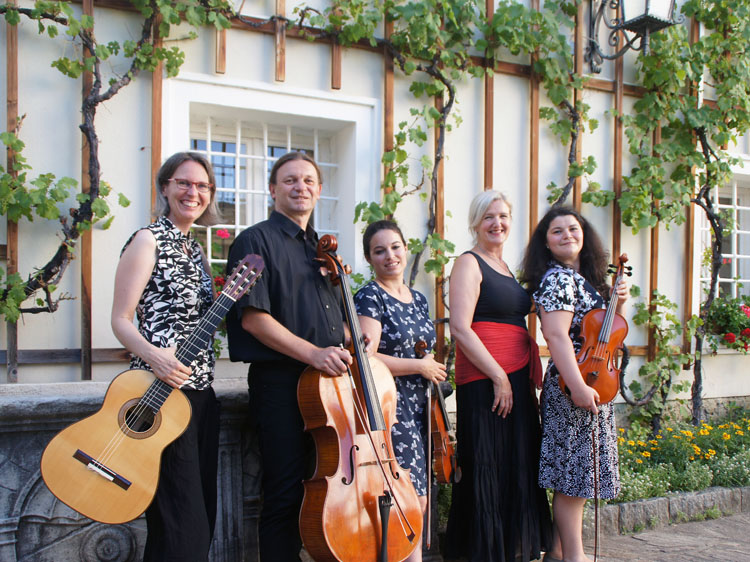Liedtexte
„I care not for these Ladies”, Thomas Campion (1567 - 1620)
I care not for these ladies,
That must be wooed and prayed:
Give me kind Amaryllis,
The wanton country maid.
Nature art disdaineth,
Her beauty is her own.For when we court and kiss,
She cries, "Forsooth, let go!"
But when we come where comfort is,
She never will say no.If I love Amaryllis,
She gives me fruit and flowers:
But if we love these ladies,
We must give golden showers.
Give them gold, that sell love,
Give me the nut-brown lass,Who, when we court and kiss,
She cries, "Forsooth, let go!"
But when we come where comfort is,
She never will say no.These ladies must have pillows,
And beds by strangers wrought;
Give me a bower of willows,
Of moss and leaves unbought,
And fresh Amaryllis,
With milk and honey fed;Who, when we court and kiss,
She cries, "Forsooth, let go!"
But when we come where comfort is,
She never will say no.
„It fell on a summers day”, Thomas Campion (1567 - 1620)
- It fell on a sommers day,
While sweete Bessie sleeping laie
In her bowre, on her bed,
Light with curtaines shadowed,
Iamy came: shee him spies,
Opning halfe her heauie eyes. - Iamy stole in through the dore,
She lay slumbring as before;
Softly to her he drew neere,
She heard him, yet would not heare,
Bessie vow'd not to speake,
He resolu'd that dumpe to breake. - First a soft kisse he doth take,
She lay still, and would not wake;
Then his hands learn'd to woo,
She dreamp't not what he would doo,
But still slept, while he smild
To see loue by sleepe beguild. - Iamy then began to play,
Bessie as one buried lay,
Gladly still through this sleight
Deceiu'd in her owne deceit,
And since this traunce begoon,
She sleepes eu'rie afternoone.
„Watkin's Ale”, English anonymous, earlier than 1592
That was a maid this other day
And she must needs go forth to play.
And as she walked, she sighed and said
"I am afraid to die a maid."When that be heard a lad, what talk this maiden had,
Where of he was full glad and did not spare
To say "Fair maid, I pray, wither go to today?"
"Good sir," then did she say, "What do you care?""For I will, without fail,
Maiden give to you Watkins ale."
"Watkins ale, sir," quoth she,
What is that, I pray you tell me?""Tis sweeter far than sugar fine
And pleasanter than Muscadine.
And if you please fair maid to stay
A little while to sport and playI will give you the same, Watkins ale called by name,
Or else I were to blame, in truth fair maid.
"Good sir," quoth she again, "If you will take the pain,
I shall it not refrain, nor be dismayed."He took this maiden then aside
And led her where she was not spied
And told her many a pretty tale,
And gave her well of Watkins ale.When he had done to her his will,
They talked but what I shall not skill
At last she said, "Spare your tale,
Give me some more of Watkins aleOr else I will not stay, for I must needs away,
My mother bade me play, the time is past.
Therefore, good sir,", quoth she, "if you have done with me."
"Nay soft, fair maid," quoth he again at last.Let us talk a little while."
With that the maiden began to smile.
And said, "Good sir, full well I know,
Your ale I see runs very low.This young man then, begin so blamed,
Did blush as one being ashamed.
He took her by the middle small,
And gave her more of Watkins aleAnd said, "Fair maid I pray, when you go forth to play,
Remember what I say, walk not alone."
"Nay soft," said she again. "I thank you for your pain,
For fear of further stain, I must be gone.""Farewell maiden," then quoth he;
"Adieu good sir," again quoth she
Thus they parted then at last,
Till thrice three months were gone and passed.This maiden then fell very sick.
Her maidenhead began to kick.
Her color waxed wan and pale,
With taking much of Watkins ale.I wish all maidens coy, that hear this pretty toy,
Wherein most women's joy, how they do sport.
For surely Watkins ale, and if it be not stale,
Will bring them to some bale, as hath report.New ale will make their bellies bowne,
As trial by this same has shown.
This proverb hath been taught in schools,
It is no jesting with edged tools.Good maids and wives, I pardon crave,
And lack not that which you would have.
To blush it is a woman's grace,
And well becometh a maiden's face.For women will refuse the thing that they would choose,
So men should them excuse of thinking ill.
Cat will after kind, all winkers are not blind,
You maidens know my mind, say what you will.When you drink ale, beware the toast,
For therein lies the danger most.
If any here offended be,
Then blame the author, blame not me.
„Wie er wollte geküsset sein”, Paul Fleming (1609 - 1640)
- Nirgends hin als auf den Mund:
Da sinkt's in des Herzens Grund;
Nicht zu frei, nicht zu gezwungen,
Nicht mit gar zu fauler Zungen. - Nicht zuwenig, nicht zuviel:
Beides wird sonst Kinderspiel;
Nicht zu laut und nicht zu leise:
Bei dem Maß ist rechte Weise. - Nicht zu nahe, nicht zu weit:
Dies macht Kummer, jenes Leid;
Nicht zu trocken, nicht zu feuchte,
Wie Adonis Venus reichte. - Nicht zu harte, nicht zu weich,
Bald zugleich, bald nicht zugleich,
Nicht zu langsam, nicht zu schnelle,
Nicht ohn Unterschied der Stelle. - Halb gebissen, halb gehaucht,
halb die Lippen eingetaucht,
Nicht ohn Unterschied der Zeiten,
Mehr alleine denn bei Leuten. - Küsse nun ein jedermann,
Wie er weiß, will, soll und kann!
Ich nur und die Liebste wissen,
Wie wir uns recht sollen küssen.
